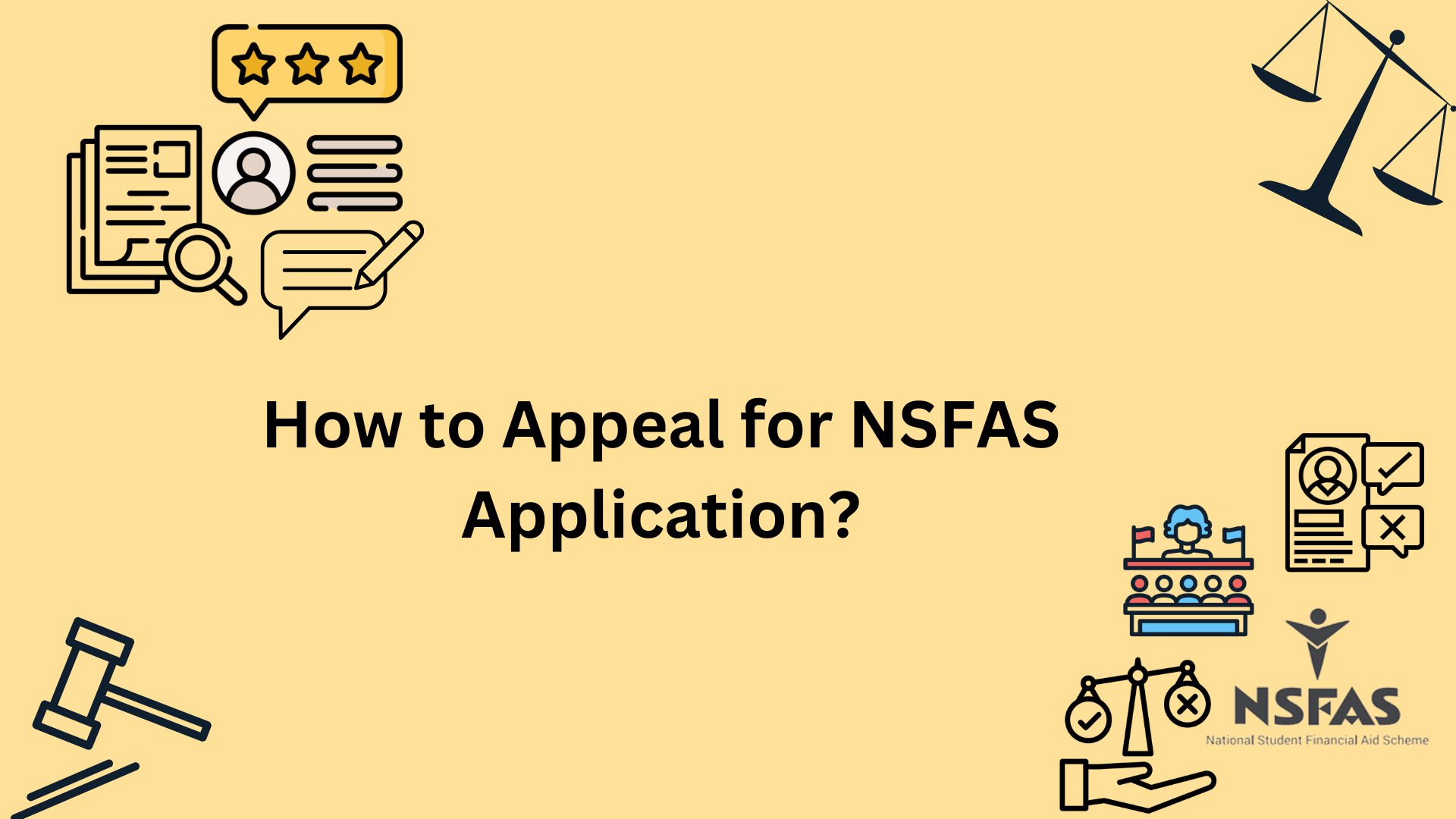NSFAS urges rejected applicants to submit their NSFAS appeal for review. With the 2023 academic year approaching, NSFAS has received over 1.5 million applications for funding, and unfortunately, over 300,000 applications have been rejected for various reasons.
In response to this, NSFAS is urging students whose applications have been declined to urgently appeal through the Independent Appeals Tribunal.
This article will provide information on how to appeal and the importance of doing so within the given timeframe.
We will also take a closer look at the status of the applications received and the role of the Independent Appeals Tribunal in ensuring fairness and equal opportunity for all applicants.
So, if you are a student who has been declined NSFAS funding, read on to learn more about the appeals process and how you can take the next steps toward securing financial aid for your studies.
Related: Check your NSFAS application status.
NSFAS urges rejected applicants to lodge an appeal
The National Student Financial Aid Scheme (NSFAS) is urging students who have been rejected for funding to appeal to the Independent Appeals Tribunal as soon as possible. The tribunal has been established to manage appeals from students whose funding applications have been declined or discontinued for continuing students.
This is to ensure that NSFAS responds to appeals in a fair and supportive funding environment, consistent with the principles of fairness, equal opportunity, and natural justice. Advocate Tommy Ntsewa will chair the tribunal, along with representatives from SAPCO, SAUS, SATVETSA, and DHET.
NSFAS applications update
NSFAS has received 1,587,968 applications for the 2023 academic year, out of which 300,803 have been rejected for various reasons. Other applications are still pending while waiting for certain documents.
Students can check their application status on their myNSFAS account, which will display an NSFAS appeal option if their application was unsuccessful.
- Awaiting Academic Eligibility Check: 9 060
- Assessing Financial Eligibility: 25 315
- Appeal Submitted: 64 139
- Rejected: 300 803
- Awaiting Evaluation: 109 325
- Submitted: 9 606
- Awaiting Academic Results: 54 220
- Duplicate: 19 320
- Not Started: 163 466
- Withdrawn: 108 631
- Provincially Funded: 1 064 574
Related: Check your NSFAS application status.
Provisionally funded applicants have been approved for NSFAS funding and will receive payment once their academic registration is submitted by the public institution they are registered with.
How to submit NSFAS appeal
The NSFAS appeal can be lodged online via the myNSFAS portal.
It is important to note that appeals must be submitted within 30 days of the appearance of the unsuccessful status, and appeals submitted via email will not be accepted.
NSFAS is encouraging rejected applicants to appeal to the Independent Appeals Tribunal as soon as possible to have their issues investigated and finalized. This is an opportunity to ensure fairness and equal opportunity in the funding process.
Additionally, applicants are advised to ensure that they have provided all the necessary documentation and information required to support their appeal. This will help to expedite the appeal process and increase their chances of success.
It is important to note that the appeals process is not a guarantee of funding. However, it provides an opportunity for applicants to have their cases reviewed and reconsidered by an independent body. This process ensures that NSFAS funding decisions are fair, transparent and consistent with the principles of natural justice.
In conclusion, the NSFAS appeal process is an important avenue for rejected applicants to have their funding applications reviewed and reconsidered. The establishment of the Independent Appeals Tribunal ensures that appeals are managed effectively and fairly.
Therefore, rejected applicants are strongly encouraged to lodge their appeals through the myNSFAS portal within 30 days of receiving their unsuccessful status.
By doing so, they will have the opportunity to have their issues investigated and finalized, and possibly secure funding to pursue their academic dreams.

